INDIVIDUAL WINNERS:
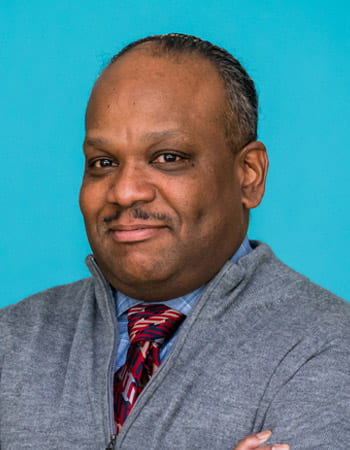 Reginald Gerod Blackwell Sr., M(ASCP)
Reginald Gerod Blackwell Sr., M(ASCP)
Medical Technologist
Microbiology Department
Alternate Responsible Official
Bioterrorism Response Unit
Department of Forensic Science
DC Public Health Laboratory (DC-PHL)
Laboratory testing is a high-volume medical activity in the U.S., with over 13 billion tests performed each year. In spite of that, there is a severe shortage of trained laboratory personnel needed to run the tests. Reginald Gerod Blackwell, Sr., who serves as the Medical Technologist and Alternate Responsible Official with the Department of Forensic Science (DFS), part of the DC Public Health Laboratory (PHL), aims to change that by expanding formal training, internships, and informal mentorship opportunities available to District youth in gaining exposure and valuable experience in this career field.
Mr. Blackwell has been a dedicated and valued servant of the DC Government for over 17 years. In Spring 2017, he collaborated with the DFS leadership to establish the laboratory’s first internship program for high school students. Under Mr. Blackwell’s direction, DC-PHL partnered with the McKinley Tech High School STEM Program to provide students with basic training in bacteriology, laboratory identification systems, and exposure to departmental programs. Most of the 11 students hosted in the first iteration of the program went on to college, and are now pursuing careers in STEM.
“[Mr Blackwell’s] influence made me confident in wanting to attend college and in choosing my major to be Public Health,” said Rinella Casseus, BS/MPH ‘25, now a student at George Washington University. “[He] mentored and helped me advance socially, professionally, and academically.”
During the COVID-19 pandemic, our region and nation as a whole experienced a severe shortage of certified laboratories for training college-level students. The hospitals that normally provided this resource were limited in their ability to host clinical rotations due to the dangers of the pandemic.
Mr. Blackwell rose to the challenge, once again, by working as a liaison between Howard University and DFS leadership to establish the first-ever partnership with Howard University’s Department of Clinical Laboratory Science. Mr. Blackwell was appointed as the Program Coordinator in 2021, and worked with the DC-PHL Microbiology Unit to host the microbiology clinical practicum rotations. He also partnered with the scientific leadership to design a program that exposed the students to modern instrumentation, cutting-edge scientific methods, and high-complexity testing.
To date, nine students have completed the rigorous rotation program in microbiology, molecular biology, immunology, and virology, which spanned a total of four semesters. Eight of the students have now graduated, and all of them work in laboratories as scientific staff. The program is set to expose many more students to envision a career of service in public health around the country and globally.
Mr. Blackwell’s role as a champion and trusted advisor is well-recognized by DC-PHL stakeholders and the wider community. “[He] has served Howard University and the public health profession indefatigably throughout his career. He does this with dedication, humility, and grace,” said Howard University Associate Professor, Dr. Marguerite E. Neita.
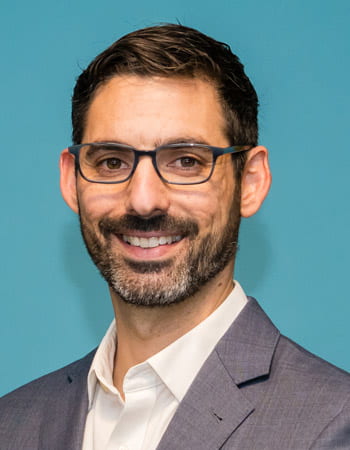 Nicholas Bonard
Nicholas Bonard
Branch Chief - Floodplains, Wetlands, and Groundwater
DC Department of Energy & Environment (DOEE)
On September 10, 2020, more than two inches of rain fell over Northeast DC within one hour, overwhelming the sewer system, flooding streets, and damaging more than 240 homes. Many affected residents were unable to afford the repairs, replace damaged belongings, or dry out their homes to prevent mold growth. This was just one of ten significant flood events in the past 20 years that damaged homes and businesses in the District.
When Nicholas Bonard started at the Department of Energy and Environment (DOEE) in 2018, he made it his mission to improve flood resilience for the District and its most vulnerable residents. One of the first problems Mr. Bonard and his team encountered was that the city’s flood maps did not show interior flooding areas that are far from existing water bodies (like the September 2020 flood had been). Recognizing that creating these maps was the critical first step towards identifying the risky areas and ultimately making them more resilient, Mr. Bonard advocated for and designed a contract to develop an Integrated Flood Model, which recently produced drafts of the first maps showing interior flooding in the District. Next steps will be to use the model to design flood reducing infrastructure in the most vulnerable neighborhoods.
The September 2020 flood occurred while the flood model was in progress. In addition to underscoring the urgency of addressing flooding, it highlighted that responsibility for reducing the District's flood risk was distributed among multiple agencies. Recognizing this, the City Administrator convened an inter-agency Flood Task Force to recommend improved flood policies and programs. Ultimately, with Mr. Bonard’s guidance, the Task Force recommended 27 actions the District could take to increase its flood resilience, including better coordination between agencies on resident flood complaints; more affordable flood insurance; and implementation of a new program, FloodSmart Homes.
While the Task Force’s recommendations and the Integrated Flood Model were necessary and important investments in the District’s flood resilience, Mr. Bonard and his team recognized that the District also needed a way to help residents currently affected by flooding. Over three years, Mr. Bonard led the efforts to secure two FEMA grants totaling $307,000 and a local budget of $490,000 to fund the FloodSmart Homes pilot program. In 2023, the first year of operations, at no cost to the homeowner, DOEE 1) provided 76 homes with a resilience assessment to identify potential upgrades like elevating electrical equipment, and 2) installed upgrades at 13 homes and flood proofing door barriers at 65 homes. These upgrades help protect the District’s most overburdened residents from costly flood-related damage and the negative health consequences when future floods occur.
Reflecting on Mr. Bonard’s contributions, Deputy Director for the Department of Energy and Environment Jeffrey M. Seltzer, PE, said, “I cannot imagine the city would have made the progress it did, without Nick’s extensive effort and leadership.”
 Charles J. Guddemi
Charles J. Guddemi
Statewide Interoperability Coordinator
DC Homeland Security and Emergency Management Agency (HSEMA)
If there is anyone who best embodies the phrase “mission first, people always,” it’s Charles Guddemi. In his role as the Statewide Interoperability Coordinator (SWIC) for the Homeland Security and Emergency Management Agency (HSEMA), he works tirelessly to improve the District’s communications capabilities. Communications play a pivotal role in response management to all types of emergencies, such as bomb threats and the January 6th storming of the U.S. Capitol.
On September 11, 2001, Mr. Guddemi witnessed first-hand the horrors of the planes crashing into the Twin Towers. Serving with the U.S. Park Police stationed at the Statue of Liberty at the time, Mr. Guddemi and his colleagues did all they could to support the evacuees that made their way to the island. In the peak of the crisis communications systems were disrupted, resulting in the loss of radio and cellular contact. This made it difficult to request the additional resources to support evacuees. The lessons learned on that day left an indelible mark on Mr. Guddemi, especially about the importance of ensuring the resilience and security of interoperable emergency communications systems.
Now working at the DC Government, he introduced the PACE concept, which stands for Primary, Alternate, Contingency, and Emergency. At its core this is a practice of developing not only plan A, but also plans B, C, and D when it comes to building out communications capabilities.
Mr. Guddemi, in close collaboration with the Cybersecurity and Infrastructure Security Agency (CISA) at the Department of Homeland Security, created a PACE course curriculum, which is now offered as part of the HSEMA Training Academy, and connects stakeholders from across the District, regional, and federal governments as well as the private and nonprofit sectors.
“In every after-action report that has since been published about all that went wrong [at the Capitol Insurrection], communications failure was not one of them,” says HSEMA Action Officer Annah Akasa. “This is because of Charlie’s ability to leverage partnerships and relationships to bring the right people and resources to the table.”
Additionally, the incorporation of PACE principles in the design of the new HSEMA Emergency Operations Center underscores Charles Guddemi’s enduring legacy to ensuring the safety and well-being of the District’s residents and first responders for years to come.
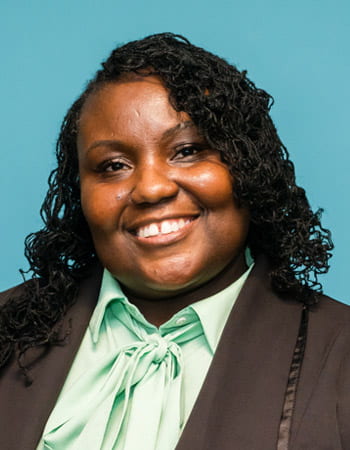 Parythina Harris
Parythina Harris
Section Chief
Economic Security Administration
DC Department of Human Services (DHS)
Customer service is critical to any government agency, but it is especially important in an organization like the Department of Human Services (DHS), which connects the most vulnerable residents with life-changing work opportunities, economic assistance, and supportive services.
Since joining the agency in 2006, Parythina Harris transformed customer service, by instilling a work culture of compassion, accuracy, and problem-solving. Her responsibilities evolved during her tenure with DHS, marked by progression through various positions within the Economic Services Administration, and coinciding with dramatic improvements in employee engagement and customer satisfaction.
In recognition of her dedication to exceptional customer care, Ms. Harris was promoted from a Social Services Representative into a supervisory role in 2016 – a call to action which she took head on. Her innovations included empowering the front-line staff, revamping the customer service process, and changing the layout of the Service Center lobby to include multiple information checkpoints.
With Ms. Harris’ leadership, the agency saw a reduction of backlogs and customer escalations, and in the words of one observer, “de-stressed” the experience for all involved. “I was immediately impressed at the way she took time out to get to know each of her employees, as well as to continuously educate them… all while maintaining and meeting her own goals. After a month of watching her with her team I knew then I wanted to be not only managed but mentored by her as well,” said colleague Brandon Bethea.
Now serving as a Section Chief, Ms. Harris oversees the operations at the H Street Service Center. Her immediate challenge coming into the role involved overseeing the return of staff following the COVID shutdown. Understanding the pivotal role the front desk staff plays in shaping customer perceptions, she promptly implemented a comprehensive customer service schedule that ensured coverage at all times. When customers complained about lost applications, slow processing times, and inattention to issues, Ms. Harris put together a quality assurance metric system that led to a remarkable improvement in efficiency and decrease in human errors.
Her legacy endures not just at DHS, but throughout the District. As a former Call Center supervisor at the Anacostia Service Center, she designed and implemented the Telephone Recertification Unit, benefiting individuals with literacy and sight issues. This proactive measure, initiated before the COVID-19 pandemic, ensured a seamless transition during challenging times, while eliminating efficiency issues in recertifying customers via telephone.
Ms. Harris’ dedication to customer service and program execution extends to public and volunteer roles. You can find her actively assisting seniors at her church with applications for the SNAP program. She also teaches sessions on empowering women, caring for individuals with special needs, and work-life balance.
In recognizing her enduring commitment to service, empathy, and positive transformation within her community, DHS Assistant Deputy Administrator Damion Graham said, “Ms. Parythina Harris truly exhibits the skills, work ethic and professional attitude desired by government leadership.”
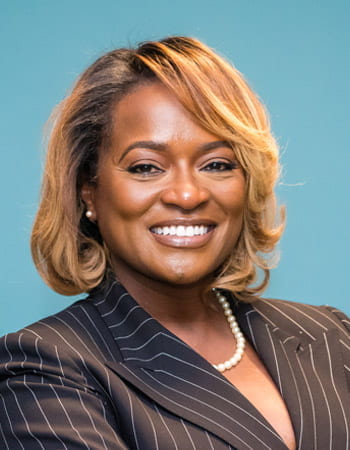 Latrena M. Owens
Latrena M. Owens
Executive Director, St. Elizabeths East Redevelopment
Office of the Deputy Mayor for Planning and Economic Development (DMPED)
Throughout a career spanning nearly two decades of public service to the District, and in her current role at the Office of the Deputy Mayor for Planning and Economic Development (DMPED), Latrena Owens has been responsible for spearheading some of the region’s most recognizable infrastructure and development projects.
Currently at the helm of the monumental St. Elizabeths East Campus Redevelopment, Ms. Owens oversees a nearly billion-dollar investment aimed at revitalizing the 183-acre campus in the Congress Heights neighborhood. This community is celebrated for its authentic small-town charm and has earned the reputation as the “Soul of the City.”
Following three decades of multiple setbacks and schedule overruns, the last four years have been a complete game-changer, particularly given the scale and complexity of the work involved. Ms. Owens has pushed to complete five new projects and implement new roadway infrastructure, while ensuring that the community remains integral to the process. Some of her and her team’s most significant accomplishments, include the following:
- Opening of Sycamore and Oak, a beautifully designed retail pop-up that provides opportunities for 13 homegrown Black-owned businesses from Wards 7 and 8;
- Completion of The Residences at St. Elizabeths East, comprising 252 apartment units, with 202 units designated for households earning less than 50% of the Median Family Income;
- District Towns at St. Elizabeths East, offering 88 townhomes for sale. It is estimated that half of the new owners are first-time homebuyers, and almost half are already city residents;
- Relocation of the new Max Robinson facility by Whitman-Walker Health to St. Elizabeths, expanding patient care by 10,000 at this new location.
“Each and every developer; each and every resident; each and every government agency knows what we know – Latrena can do anything. But she will only do anything when it’s best for the citizens of the District of Columbia,” said Naseema Shafi, CEO of Whitman-Walker Health.
Ms. Owens is recognized by her colleagues and partners for her exceptional ability to navigate complex challenges, build strong partnerships, and deliver results. The work involves countless thankless hours, navigating the redevelopment rights of varied parcels, completing long-standing infrastructure investments, and supporting ongoing development.
The plans ultimately envision the creation of 1.8 million square feet of office and retail space, new restaurants, the only working hospital east of the river, and over 1,500 residential units — half of which are designated as affordable housing space. The project is also estimated to create over 2,000 jobs. And this is only the beginning!
TEAM WINNER:
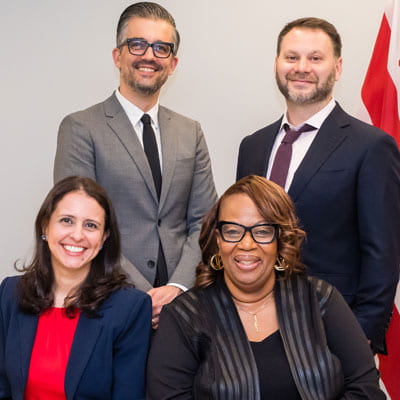 Office of Migrant Services Team
Office of Migrant Services Team
Department of Human Services (DHS)
OMS Team members clockwise from top: Joseph Lippi, Justin Brown, Debra Crawford, Tatiana Laborde
Members:
- Justin B. Brown, Deputy Administrator: Directed all aspects of operations, policy, budget, and community coordination in the establishment of the Office of Migrant Services.
- Debra R. Crawford, Deputy Administrator: Facilitated OMS’ ability to leverage and offer resources available to migrants without compromising other District services.
- Tatiana Laborde, Program Manager: Led the opening of the OMS Reception and Respite Center in May 2023, which focuses on supporting the needs of newly arrived migrants.
- Joseph Lippi, Senior Advisor: Guided efforts for strategic and contingency planning to address emergent needs for arriving migrants, while simultaneously planning for long-term infrastructure of the new office.
Washington, DC is a cosmopolitan hub, extending a warm welcome to people from around the world. That said, the existing social services system, public schools, and other government services are not equipped to accommodate an influx of hundreds of newcomers per week, particularly those lacking resources or the federally-mandated right to work and settle in the U.S.
In April of 2022, asylum-seeking migrants from the southern border states began arriving on chartered buses several times per week, often in the early morning. Disembarking migrants would typically carry only a clear plastic garbage bag containing their immigration documents, a blanket, and military- style ready-to-eat meals. They would have already surrendered their passports to authorities by the time of their arrival to DC, and were clad in minimal attire, such as T-shirts, shorts, and sandals.
Regrettably, state governors chartering these buses failed to provide notice, coordination, or resources for over 17,000 migrants sent directly to the District. In the initial months of the crisis, community groups rallied to ensure that the migrants were greeted upon arrival and offered assistance, clothing, food, and a glimmer of hope. Despite the immense outpouring of support, the efforts lacked efficiency and were not sustainable.
Responding to the escalating situation, Mayor Muriel Bowser declared a public emergency and established the Office of Migrant Services (OMS). The OMS began with three objectives that stand today:
- Leverage community resources and support, not supplant non-governmental organizations that aid migrants;
- Create a comprehensive ecosystem of supports, including welcome, short-term respite care, and temporary lodging.
- Ensure client dignity and provide basic needs, such as safety, nutrition, urgent medical care, clothing, schooling.
Within three months of being established, these objectives were well on the way of being achieved by an inspired team of leaders at the OMS, working closely with partner governments agencies, as well as community and faith-based groups, nonprofits and international aid organizations.
These efforts were not without obstacles. President and CEO of the Hispanic Heritage Foundation, Antonio Tijerino, said, “With immigration at the forefront of divisive, politically charged narratives, OMS ignored the noise and have been steadfast in providing services and building systems with a human-centered approach, rising above controversial issues that might compromise the work that is critical to the most vulnerable in our valued community.”
Today, migrant arrivals into the District can access help at a well-organized Reception and Respite Center, which serves as a single access point to a comprehensive network of services dedicated to improving health and social outcomes, as migrants work towards self-sufficiency.
“There was no blueprint for this work. Through trial and error, passion, and commitment, the DHS Office of Migrant Services exemplified the type of leadership and innovation the Cafritz Awards seek to support and promote,” said DHS Director Laura Green Zeilinger.
21st Annual Cafritz Awards Finalists
Individual Finalists
Baylen Brooks
Operations Specialist, Cluster 8
DC Public Schools (DCPS)
Tenika C. Brown
Human Capital Administrator
Department of Public Works (DPW)
Ketan Gada
Director/Supervisory Project Manager, Hill East District Redevelopment
Office of the Deputy Mayor for Planning and Economic Development (DMPED)
Patricia Gracyalny
Assistant General Counsel, Office of the General Counsel
Office of the Chief Financial Officer (OCFO)
Marvin Ben Haiman
Chief of Staff / Reserve Police Officer
Washington DC Metropolitan Police Department (MPD)
Emily Kahan
Clinical Social Worker, School Based Behavioral Health Program
Department of Behavioral Health (DBH)
Anwar Mahmood
Architect ADA
Office of Disability Rights (ODR)
Tyreese R. McAllister, LPC, CSOTP, CCTP
Training Program Officer for First Responders
Department of Behavioral Health (DBH)
Cassandra B. White
Resource Allocation Officer
Fire and Emergency Medical Services (FEMS)
Team Finalists
Advanced Technical Center Team
Office of the State Superintendent of Education (OSSE)
Team Members:
Kilin Boardman-Schroyer
Clifton Martin
Andrea Zimmermann
Xavier Amos
Sita Ramamurti, Ph.D. (Trinity Washington University)
Marilyn Hamilton, Ph.D. (University of the District of Columbia)
Monica Dodge (DME)
Crystal Smith (DCPS)
Mohamed Jalloh (DGS)
Gerald Kasunic (DFHV)
Building Energy Performance Standards (BEPS) Team
DC Department of Energy and Environment (DOEE)
Team Members:
Antonio Yaquian-Luna
Ashlei Williams
Aykut Yilmaz
JoAnna Saunders
Cristine Gibney
Ryan Gavin
Katie Bergfeld
Robert Campbell
Barbara Martinez
Michael Feldman-Wiencek
DC Reading Clinic
DC Public Schools (DCPS)
Team Members:
Dr. Helen Behr
Abigail Klein
Dr. Jasmine Rogers
Erin Dunn
MeQuel Bolden
Claire Sontag
DC’s Deputy Mayor for Education’s Office of Out of School Time Grants and Youth Outcomes (The OST Office)
Office of the Deputy Mayor of Education
Team Members:
Dr. Shontia Lowe
Shanna Samson
Dr. Howard Hope
Mark Weinberger
Karida Green
Marcus Shaw
Kevin Cataldo
Biodun Oluwole
Olayide Ibironke
Department of Behavioral Health and Metropolitan Police Department Collaboration
Team Members:
Tyreese R. McAllister (DBH)
Bonnie McDonald (DBH)
Officer Melvin Evans (MPD)
Officer Karen Carr (MPD)
High-Impact Tutoring Team
Office of the State Superintendent of Education (OSSE)
Team Members:
Sarah Martin
Charlotte Nugent
Jessica Sobin
Crystal Thomas
Alethia Hinds
Sam Angileri
Ridgecrest Village Phase II | Affordable Housing Substantial Rehabilitation and Full Electrification Project
Department of Housing and Community Development (DHCD)
Team Members:
Lance Loncke (DOEE)
William Liggins (DMPED)
Grace Campion (DHCD)
Pamela Lee (The NHP Foundation)
School Data and Performance Team
Office of Data and Technology, District of Columbia Public Schools
Team Members:
Kirsten Karttunen
A’isha Crawford
Cassie Walther
Elspeth Grasso
Zakyia Goins-McCants
The Office of Contracting and Procurement's (OCP) Team
in partnership with Department of Human Services (DHS)
Team Members:
Marketa Nicholson
Willandria Blount
Dawn Mayo
Maroufath Ogoussan
Jesse Scott
Rachelle Samuel
Rhonda Meriwether
Javon Wright
Camille Christian
Constance Weaver-Thomas

